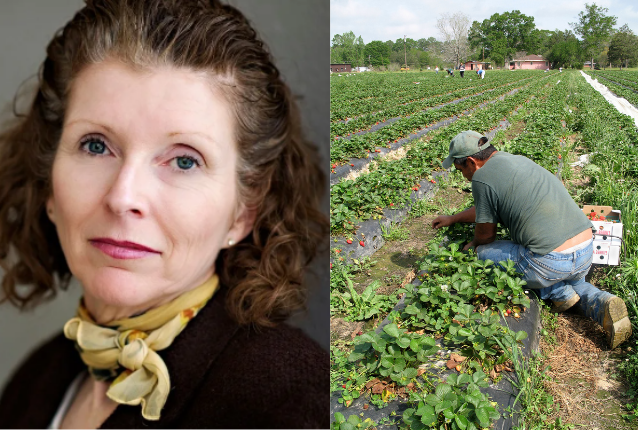Partner Spotlight - Susan Elliott
"The worry we have affects our wellbeing. You can literally worry yourself sick, and we know that when we are under stress, we don’t make good choices.”
Climate change. It’s a ‘buzz word’ we constantly hear that seems too big of an issue for one individual to impact positively. But what if we told you that climate change and its relation to health is about equity? It’s about checking in on your neighbours, building social connections, and understanding that all health is global health.
Southwestern Public Health recently partnered with the Climate Institute at the University of Waterloo to conduct a vulnerability assessment exploring how climate impacts our vulnerable populations and what tangible actions we can take. One of the experts involved in this assessment was Susan Elliott, a professor of geography at the University of Waterloo. More specifically, Susan is an expert in medical geography and looks at relationships between the environment and many different aspects of health. She says that the one thing each of us can do to negate the health effects of climate change is to be a better ‘neighbour.'

A new study from the World Health Organization states that being socially isolated is equivalent to smoking 15 cigarettes a day. As we continue to see a lot more erratic storm behaviour, Susan urges anyone and everyone to think, ‘how can we change this?’ “The answer is to knock on your neighbour’s door to see if you can help them and to recognize that all the actions you can take to be healthy are impacted by climate change,” (i.e. when it’s icy, you are not able to be active outside).
Another issue at hand is the violent impact of climate change, for example, human trafficking. “When there are droughts in some parts of the world and you have children to feed, but you don’t have food to feed them because your crops haven’t grown, the fastest way you can make money is by selling one of your female children into marriage,” notes Susan. Climate change isn’t strictly an environmental problem, it also impedes human rights.
“All health is global health, and this became evident during the recent pandemic,” says Susan. “The health of those across the world as well as locally directly impacts our health as we’re all connected and can learn from one another.” Susan also notes that in Canada, 1 per cent of the population doesn’t have access to safe water and sanitation, which is a small percentage, but a large population of primarily Indigenous people.
Another example of the impacts of climate change on vulnerable populations is when large proportions of migrant seasonal workers come for short periods of time, and when the sun is extremely hot. “We need to protect these workers from melanoma and heat stroke, but that is dependent on their employer,” says Susan. “If they are not getting personal protective equipment like hats and sunscreen, they are in a precarious situation as they need the money to support their families.” We need institutions like the Ministry of Labour to ensure these workers have proper PPE and adequate housing and access to water and sanitation.
One more aspect of climate change to consider is the mental strain of worry, however, this is where the tide can change. It’s not uncommon to hear that parents are worried about the future for their child(ren) and grandchild(ren). “The worry we have affects our wellbeing. You can literally worry yourself sick, and we know that when we are under stress, we don’t make good choices” says Susan. “But, the brain is elastic and what we can do is to begin reframe our thinking to be positive and to turn outwards to our neighbours rather than inwards.”
Sharing positive initiatives on social media such as tree planting within our region and educating youth in classrooms about climate change and how to positively play a role in it makes a difference. Social media is ever changing but, if we begin with small steps like ‘Let’s Talk Science’ where students can take what they’ve learned home to their parents and have productive conversations. This helps to build our capacity as a collective and promotes empowerment rather than making climate change out to be an issue that on an individual level we can’t do anything about.
“Think about all the unused spaces that are closed on weekends, such as schools and community buildings,” Susan says. “Why can’t we open these spaces and allow children to play in them when the air quality isn’t good or when the UV is too high.” Susan encourages everyone to think about health and equity in a different lens, to come together as a whole to benefit the health of all.
At Southwestern Public Health, we believe that together, we’re healthier, and that is true regarding impacting climate change positively. There are actions each of us can take together to make institutions, programs, and our communities more equitable for all. Choose to act by getting involved with your local MPP, have conversations about climate change, take your bicycle or walk to work, because no matter how small the action, it matters on a global level.
Contact Us
Southwestern Public Health (8:30 a.m. - 4:30 p.m., Monday - Friday)
St. Thomas Site
(Administrative office)
1230 Talbot Street
St. Thomas, ON N5P 1G9
Woodstock Site
410 Buller Street
Woodstock, ON N4S 4N2
Call us toll free: 1-800-922-0096
Email us
Work with Us
Southwestern Public Health (SWPH) values our people! We pride ourselves on our positive and flexible work environment.
